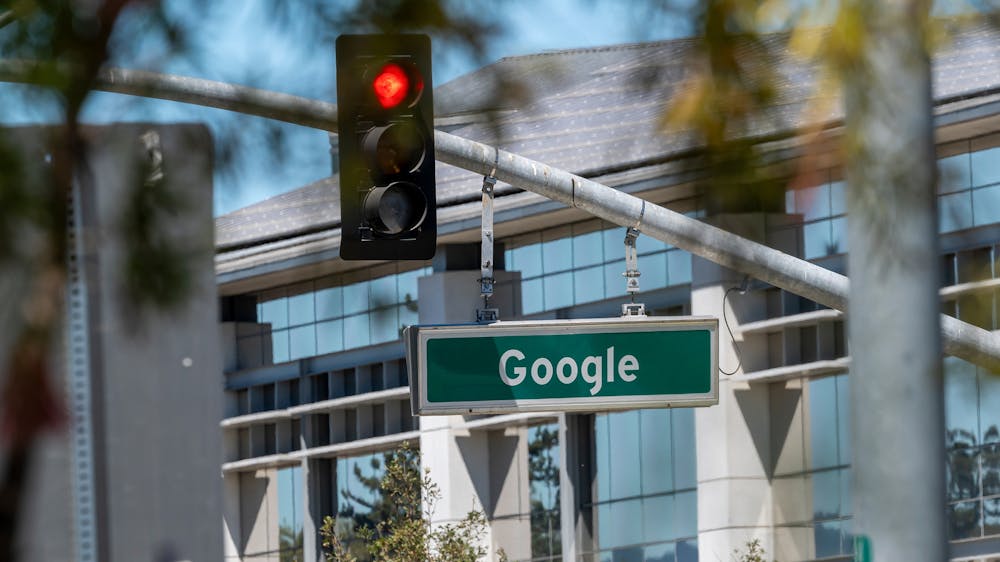Is Google Facing An Existential Threat Of Breakup?

Table of Contents
The Case for a Google Breakup
The calls for a Google breakup stem from significant antitrust concerns and the company's undeniable market dominance.
Antitrust Concerns and Market Dominance
- Overwhelming Market Share: Google controls over 90% of the global search market, a position solidified through years of strategic acquisitions and aggressive tactics. Its dominance extends to other crucial sectors, including mobile operating systems (Android), online advertising (Google Ads), and digital mapping (Google Maps).
- Global Antitrust Investigations: Numerous antitrust lawsuits and investigations have been launched against Google globally, alleging anti-competitive practices. The European Union has levied significant fines, and similar actions are ongoing in the US and other jurisdictions. These investigations often cite Google's leveraging of its search dominance to favor its own products and services, hindering smaller competitors.
- Stifled Competition and Innovation: Critics argue that Google's market dominance stifles competition and innovation. Smaller companies struggle to compete against Google's immense resources and market power, leading to a less diverse and dynamic tech ecosystem. This lack of competition can result in slower innovation and fewer choices for consumers.
Stifling Innovation and Consumer Choice
Google's vast ecosystem, while convenient for users, raises concerns about limiting consumer choice.
- Pre-installed Apps and Default Settings: Android's dominance often means Google apps are pre-installed and set as defaults, making it difficult for rival apps to gain traction.
- Search Algorithm Bias: Allegations of bias in Google's search algorithm favoring its own products and services create an uneven playing field for competitors.
- Impact on Small Businesses: Smaller businesses often rely heavily on Google's services for advertising and visibility. Google's market power allows it to dictate terms, potentially harming smaller players.
The Case Against a Google Breakup
While concerns about Google's dominance are valid, arguments exist against a forced breakup.
Benefits of Google's Integrated Ecosystem
Many users appreciate the convenience and seamless integration of Google's various services.
- Unified User Experience: The interconnectedness of services like Search, Maps, Gmail, and YouTube offers a streamlined and user-friendly experience.
- Data Synergy: The integration allows Google to leverage data across services, improving the relevance and personalization of its offerings.
- Cost-Effectiveness: For users, accessing a range of services through a single ecosystem can be more cost-effective than using multiple providers.
The Challenges of Dividing a Complex Company
Breaking up Google presents significant logistical and practical challenges.
- Interdependence of Services: Google's services are deeply intertwined, and separating them could severely disrupt operations and functionality.
- Economic and Employment Impacts: A breakup could lead to job losses, economic instability, and potentially damage investor confidence.
- Risk of Creating Weaker Entities: Dividing Google might create several smaller, weaker companies, potentially less capable of competing on a global scale and leading to less innovation.
The Unintended Consequences
A forced breakup could have unintended negative consequences for consumers and the tech industry.
- Fragmentation of Services: Separating Google's services might lead to a fragmented user experience and increased complexity for consumers.
- Reduced Innovation: Smaller, independent entities may have less incentive or resources to invest in large-scale innovation.
- Increased Costs: Competition might not automatically lead to lower prices; in fact, costs for consumers could potentially increase due to duplicated infrastructure and reduced economies of scale.
The Potential Impact of a Google Breakup on the Tech Landscape
A Google breakup would significantly reshape the tech landscape.
Increased Competition and Innovation
A breakup could potentially foster increased competition and innovation.
- New Market Entrants: A less dominant Google could create opportunities for new companies to enter and compete in various sectors.
- Diverse Product Offerings: Consumers might benefit from more diverse products and services, fostering innovation and improvements across the board.
Changes in Pricing and Services
The impact on pricing and services is uncertain.
- Potential Price Increases: Competition isn't guaranteed to lower prices; increased costs for smaller companies could lead to price hikes for consumers.
- Differentiated Service Offerings: Different parts of the broken-up Google might offer specialized services with varying price points.
Geopolitical Implications
A Google breakup would have significant geopolitical implications.
- Global Regulatory Impact: The decision would set a precedent for global antitrust regulation, affecting other tech giants and international competition.
- Shift in Global Tech Power: The breakup could shift global tech power dynamics, impacting various countries' economic and political influence.
Conclusion: The Future of Google and the Debate Over a Breakup
The debate over a Google breakup is complex, with compelling arguments on both sides. While concerns about Google's monopoly power and potential stifling of competition are valid, the potential negative consequences of a breakup—including economic disruption and fragmentation of services—must also be carefully considered. The central question remains: Is a Google breakup truly necessary, or would it be a detrimental disruption to the tech industry? What are your thoughts on the potential for a Google breakup? Share your perspective in the comments below and join the conversation!

Featured Posts
-
 The Growing Risk Of Googles Demise Through Breakup
Apr 22, 2025
The Growing Risk Of Googles Demise Through Breakup
Apr 22, 2025 -
 Google Breakup A Realistic Possibility
Apr 22, 2025
Google Breakup A Realistic Possibility
Apr 22, 2025 -
 The Closure Of Anchor Brewing Company Whats Next For The Brewery
Apr 22, 2025
The Closure Of Anchor Brewing Company Whats Next For The Brewery
Apr 22, 2025 -
 Sweden And Finlands Military Assets Towards A Pan Nordic Defense Strategy
Apr 22, 2025
Sweden And Finlands Military Assets Towards A Pan Nordic Defense Strategy
Apr 22, 2025 -
 Remembering Pope Francis His Life And Legacy After Death At 88
Apr 22, 2025
Remembering Pope Francis His Life And Legacy After Death At 88
Apr 22, 2025
